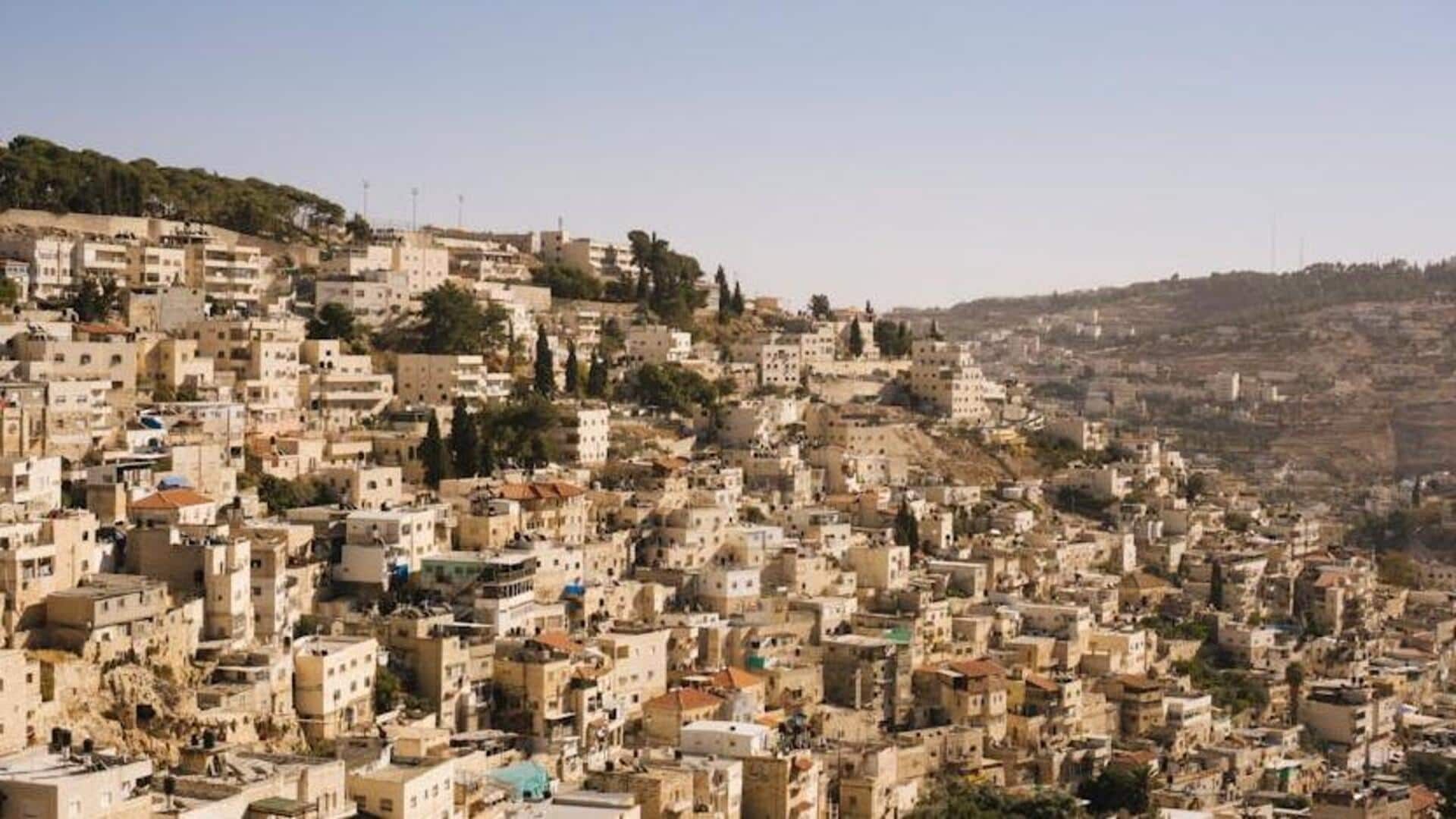
Exploring Jerusalem's sacred sites with this travel guide
What's the story
Jerusalem, a city rich in history, serves as a crossroads of faiths.
Ancient stones here tell tales of devotion and struggle, attracting global visitors.
This guide showcases five iconic religious monuments that reveal the city's spiritual essence.
Each site contributes to Jerusalem's complex narrative, inviting exploration of belief and architecture that have shaped this sacred city for millennia.
Recommendation 1
The Western Wall: A testament to faith
The Western Wall, also known as the Wailing Wall, remains from the Second Jewish Temple, destroyed in 70 CE. It symbolizes perseverance and faith for Jews worldwide.
Visitors witness worshippers praying and placing written prayers into the ancient stones' cracks.
This atmosphere of profound spirituality and communal memory makes it a vital visit for those seeking to connect with Jerusalem's enduring spirit.
Recommendation 2
The Church of the Holy Sepulchre: Where history meets mystery
Nestled within the Christian Quarter, the Church of the Holy Sepulchre marks where many Christians believe Jesus was crucified, buried, and resurrected.
This complex structure houses several chapels and sacred relics across various Christian denominations.
Its dimly lit interiors are filled with incense and chants, offering an immersive experience into Christian traditions deeply rooted in history and mystery.
Recommendation 3
Dome of the Rock: An iconic Islamic landmark
The Dome of the Rock stands out with its magnificent golden dome gleaming under Jerusalem's sun.
Located on the Temple Mount (Haram al-Sharif), it is one of Islam's oldest structures and commemorates Prophet Muhammad's night journey to heaven.
Non-Muslim visitors can admire its breathtaking architecture from specific viewing points around it, since entry into the shrine itself is restricted.
Recommendation 4
Al-Aqsa Mosque: A place for reflection
Adjacent to the Dome of the Rock, Al-Aqsa Mosque stands as a significant Islamic site. It marks one end of Muhammad's miraculous night journey, as mentioned in Islamic scriptures.
Serving as a place for daily prayers for thousands of Muslims, it also offers serene courtyards for reflection.
Its historic arches and columns add to the tranquility, inviting visitors into a space of contemplation.
Recommendation 5
Mount Zion: A tapestry of traditions
Mount Zion, situated just outside Jerusalem's Old City walls, remains central to its religious landscape.
It is home to pivotal sites for Judaism (King David's Tomb), Christianity (the Room of The Last Supper), and Islam (the location where Prophet David prayed).
This hill embodies the intertwined nature of these faiths within Jerusalem's narrative, continuously attracting pilgrims in search of understanding or solace.